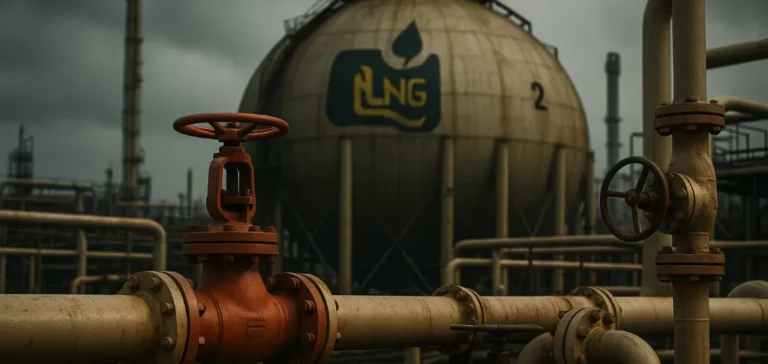Nigeria LNG Ltd (NLNG) has signed a series of gas supply agreements with the state-owned Nigerian National Petroleum Company Ltd (NNPC Ltd) and several private oil operators to secure the daily delivery of 1.29 billion standard cubic feet of gas (bcf/d) over a twenty-year period. These contracts are intended to support NLNG’s existing natural gas liquefaction capacity and its expansion projects.
Partners involved in the agreements include Shell Nigeria, Oando Group, Aradel Holdings, and First Exploration and Petroleum Development Company (First E&P). The contracts include options for extension beyond the initial two decades. This initiative aims to address structural upstream supply gaps and ensure the continuity of industrial operations.
An Industrial Response to Supply Challenges
The contracted gas volumes will be ramped up progressively to feed the Train-7 project, currently being finalized on Bonny Island in Rivers State. This $10 billion project is currently 80% complete. It is seen as a strategic tool to strengthen the country’s liquefaction capacity while improving the monetization of domestic gas resources.
Train-7 is being developed in a context of increasing pressure on Nigeria’s energy infrastructure, facing rising domestic and international demand. Long-term gas feedstock security has become critical to avoid production disruptions and maintain supply stability.
An Equity Structure Led by a Consortium
Nigeria LNG Ltd operates under a joint venture model involving both international and national stakeholders. The current equity structure is as follows: NNPC Ltd holds 49%, Shell Gas 25.6%, TotalEnergies 15%, and Eni 10.4%. This consortium oversees the majority of the country’s liquefied natural gas production, with a strong presence in export markets.
The signing of these long-term contracts reflects a commitment to anchor liquefaction projects in a medium- and long-term industrial strategy. It also aims to reassure sector stakeholders, particularly international clients, of Nigeria’s capacity to meet contractual delivery obligations.






















